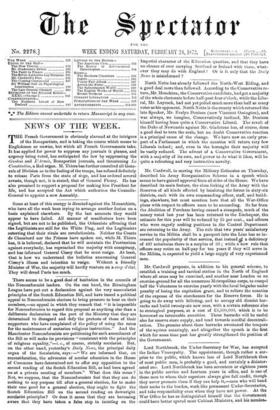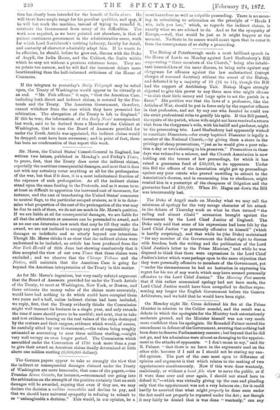Lord Northbrook, the Under-Secretary for War, has accepted the Indian
Viceroyalty. The appointment, though rather a sur- prise to the public, which knows less of Lord Northbrook than of most public men, is probably a good, and certainly a disinter- ested one. Lord Northbrook has been seventeen or eighteen years in the public service and fourteen years in office, and is one of those men to whom their superiors always give full credit, though they never promote them if they can help it,—men who will bend their necks to the burden, work like permanent Under-Secretaries, and take responsibility even when they have not power. At the War Office he has so distinguished himself that the Government could have better spared most Cabinet Ministers, and his Itemizes
tion has clearly been intended for the benefit of India alone. He will there have ample range for his peculiar qualities, and may, if he will but work the machine, instead of trying to renioAel it, extricate the Government from many of its difficulties. The work now required, as we have poiuted out elsewhere, is that of patient continuous government in the administrative sense, work for which Lord Northbrook's untiring industry, faculty for detail, and austerity of character admirably adapt him. If he wants to be effective, he should, before he goes out, discuss with the Duke of Argyll, the India House, and the Cabinet, the limits within which he may act without a previous reference home. They are on points too narrow, and he will find the incessant delays more heartbreaking than the half-informed criticisms of the House of Commons.



































 Previous page
Previous page